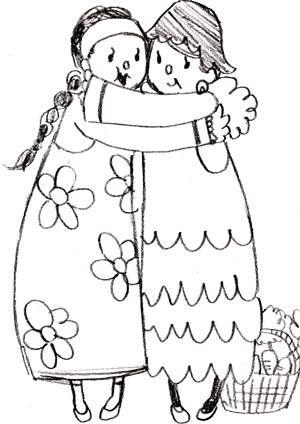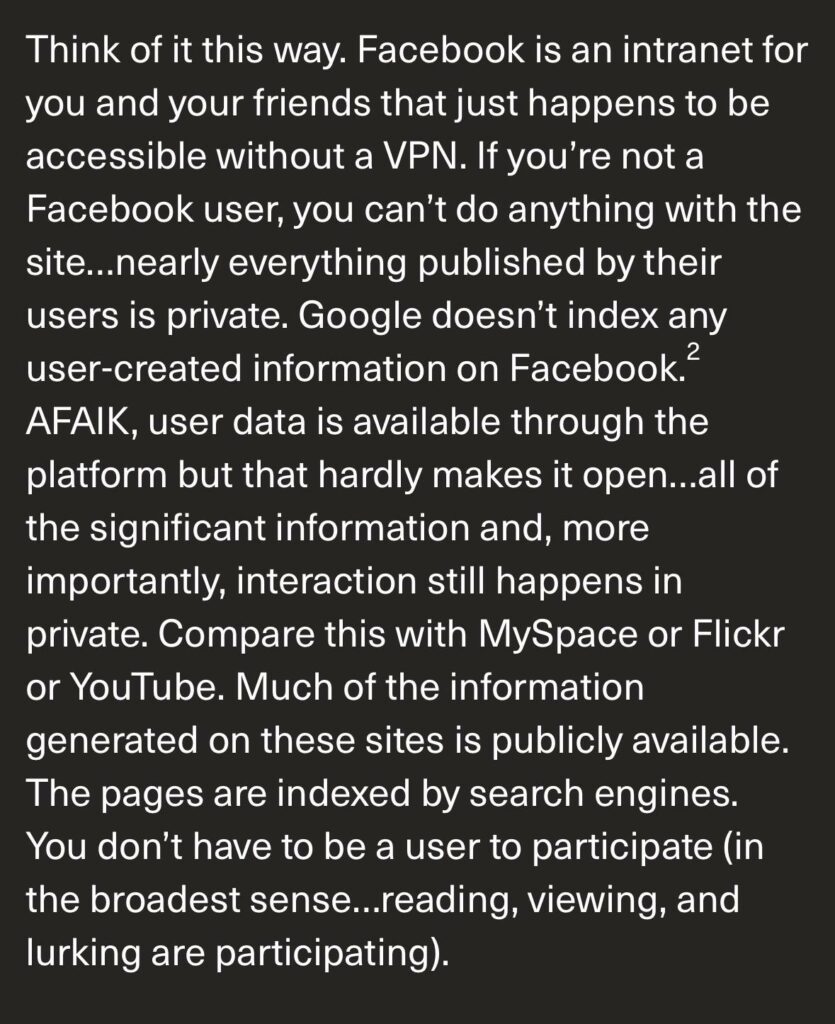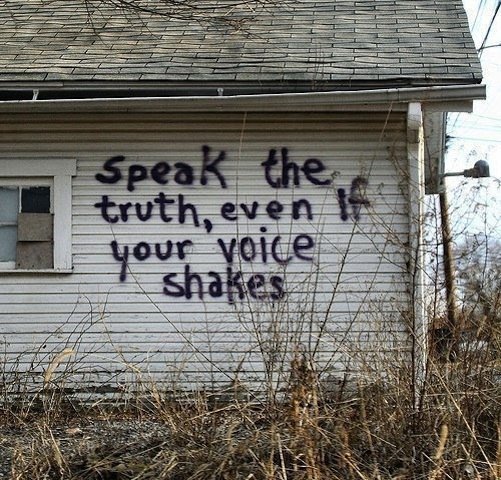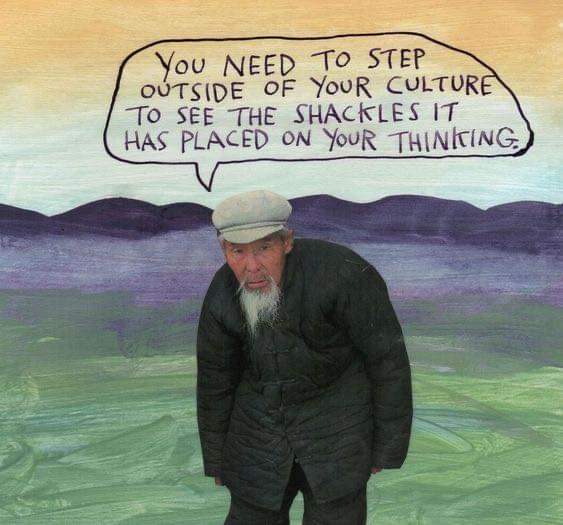What should be open? What is okay to be closed?Let’s begin from a traditional liberal framing: Most social interactions should be OPEN, some private or sensitive interactions may be CLOSED.
This isn’t radical. It’s been a functional principle across free societies for the last century. But in our current digital culture, this simple framing is often flipped or ignored. Many developers, activists, and even funders uncritically push for closure, often in the name of privacy, safety and control, without recognizing what’s lost when everything closes.
The power of OPEN is in all good forms of social power, and progress comes from open processes:
Transparency builds trust.
Sharing creates knowledge and community.
Federation gives us alternatives to centralized control.From the printing press to Wikipedia, openness has always been a powerful force for liberation, creativity, and ideas of justice. Meanwhile, much of the worst abuse and corruption festers in the dark:
Hidden surveillance (NSA/Five Eyes).
Closed algorithms (Facebook/YouTube).
Closed decision-making in opaque NGOs and funding foundations.If we push everything into private silos or locked behind paywalls, we kill the culture that allows us to challenge and change the systems we live and die under. We are left with only closed, and that’s not a world we want to live in.
A real-world example is needed? Let’s talk about the Diaspora project, 15 years ago, in response to Facebook’s rise, a group of well-meaning devs built a “privacy-first” social network. They rejected the openness of exiting paths like #RSS and federated tech like #XMPP. They wanted to start from scratch, build their own private network, and lock down data flows, for “safety”.
The result was a very predictable mess, Diaspora burned brightly and briefly, but never built a vibrant network. In contrast, existing open networks were shouted down, de-funded, and ignored. Ten years passed. Then, we had to reinvent the same open paths, we had shut out, with ActivityPub to get back to what #RSS and other open tools had already done.
This is the #geekproblem, the idea that you can throw away working social infrastructure because it’s not “clean” or “cool”, and replace it with abstract, closed systems… a path that usually ends in failure. Worse, it delayed progress by a decade. Encryptionism, privacy dogma, and the closing of the commons, where mess we now need to compost
Yes, privacy is important, nobody is arguing otherwise, but what many #encryptionists miss is that building only for privacy is building only for fear. You can’t build a shared culture on fear alone, you need to balance this with trust, transparency, and cooperation too. These require openness. When everything defaults to closed, the commons die, and without the commons, there is no #openweb.
A politics of openness, is not just technical. It’s deeply social and political. It touches on human nature, ideology, and power. If you’re new to these ideas, start with some reading of the basics of Sociology (Wikipedia) and Political ideologies then ask what assumptions are built into tech? Who does it empower? Who does it exclude?
This is about where to begin, to understand motivations and outcomes in #openweb development, it helps to name the ideological currents at play:
Conservatism → favors stability, hierarchy, closure.
Liberalism → favors rights, transparency, and balance.
Anarchism → favors decentralization, autonomy, and openness.Much of the Fediverse, despite the tech mess, is functionally anarchist in ethos. But this is rarely understood or spoken aloud. We have the A (Anarchy) but not yet the O (Order). A job people could take on is to fix this by building the O in the Fediverse, rather than let the default path be imposed, by the natural flow where #NGOs and #foundations bring closed governance models wrapped in the fig leaf of “participation”, we should be working now to build native, open forms of governance.
That’s what the Open Governance Body (#OGB) is outlined to do, to creating soft structure for an open culture. That’s what the #4opens help guide: basic principles for transparency and shared power, let’s support these paths. As if we default to closure – either because of fear, control, or ideology – we kill the #openweb before it can grow back.
Let’s remember, we are the stewards of the future commons, let’s keep the doors opens. Thoughts? Examples? Let’s keep this conversation alive, in the open.










